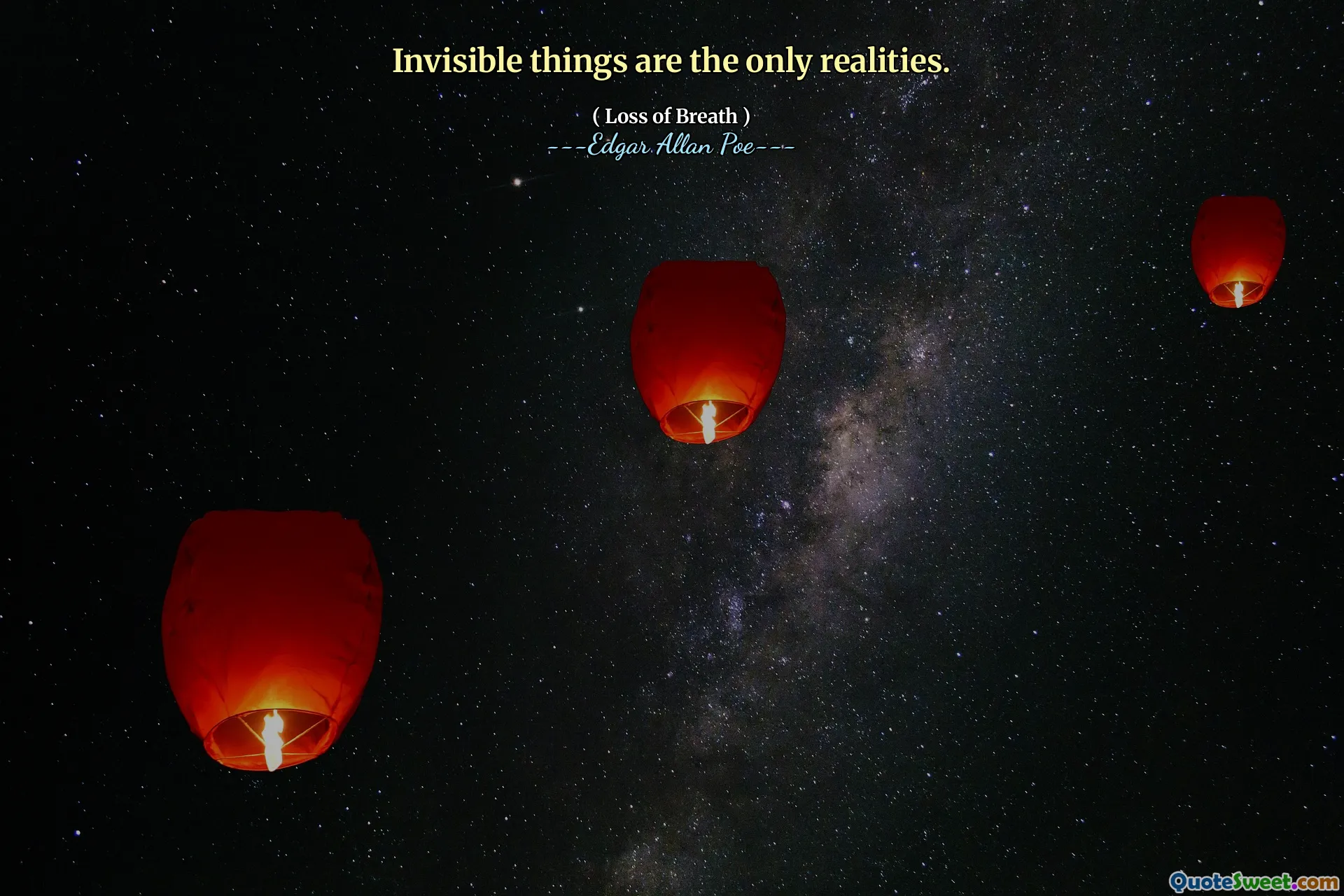
Invisible things are the only realities.
In Edgar Allan Poe's work "Loss of Breath," the author explores the profound notion that the unseen aspects of life are the truest truths. This perspective challenges the reader to consider how much of our reality remains invisible and how important these elements are to our understanding of existence. The quote suggests that what we cannot see often holds greater significance than that which is visibly apparent.
Poe's assertion prompts reflection on the intangible aspects of life, such as emotions, thoughts, and spiritual experiences, which shape our realities in ways that physical objects cannot. By focusing on these "invisible things," Poe invites a deeper appreciation for the complexities of human experience and the mysteries that lie beyond our immediate perception.


